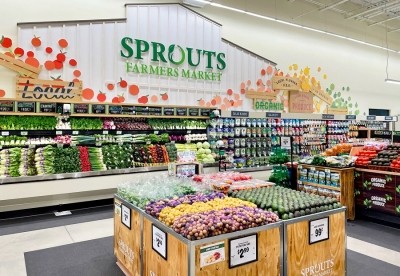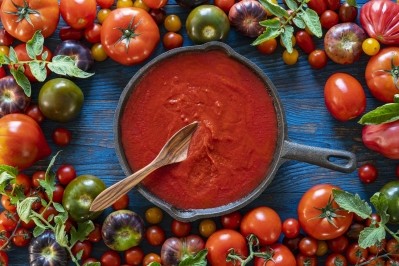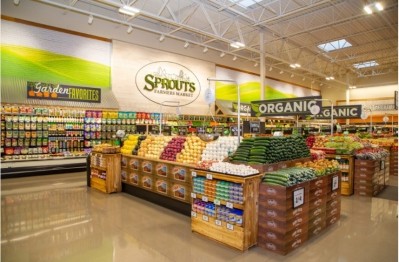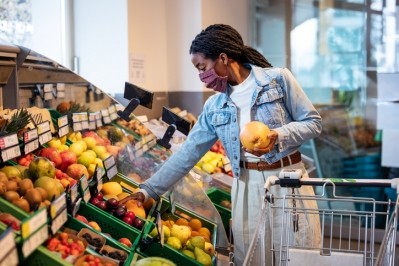Sprouts Farmers Market sales, foot traffic rebound as retailer brings back ‘selling culture’
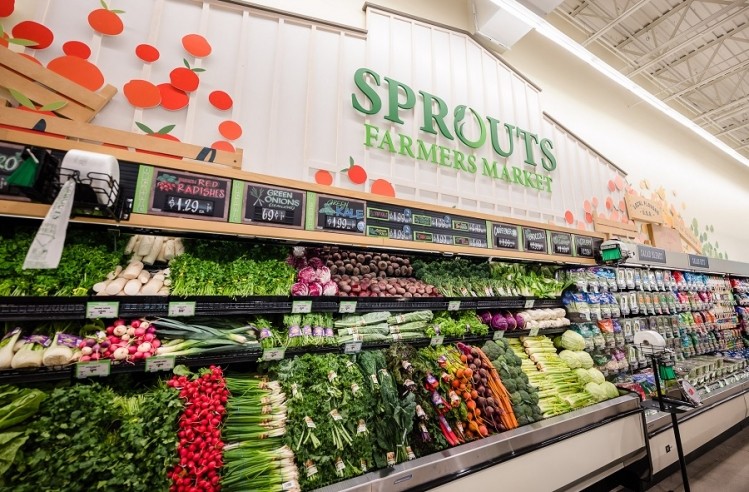
During the company’s second quarter ending July 3, the retailer “emphasized bringing back a selling culture, improving in-stocks, amping up our merchandising and testing marketing initiatives,” which “resulted in better-than-expected financial performance including total sales growth of 5%, comparable store sales of 2% and earnings per share growth of 10%,” CEO Jack Sinclair told investors this week.
The 2% increase in comparable store transaction, which the company uses as a stand in for store traffic, is a significant shift from the 10% year-over-year decline the company reported in the same period last year and represents a strategic marketing correction.
In the middle of 2019, Sprouts opted to discontinue what it considered an onslaught of aggressive, ever-increasing promotions on which it previously relied to drive traffic but which also eroded margins and brand equity. The move cost the retailer approximately 25% of its transactions in the second quarter 2020 – which was about what the banner expected but hit harder because the pandemic delayed recovery by simultaneously changing shopping patterns.
While the company expected sales and traffic to rebound by the back half of last year, the results fell flat with sales and traffic continuing to decline – pushing the retailer in Q4 of 2021 through the end of its most recent quarter to test new marketing strategies.
These included bringing “back the consultive selling culture in our stores by highlighting key items with placement and signage while also supporting [shoppers] with sampling events,” Sinclair said.
He added that the retailer also is “amping up the selling culture” by fostering “a little healthy competition among stores” with team member contests, which he said team members “owned” during the second quarter to reach new goals.
Tailored merchandising meets loyal consumers’ top needs
The company also is adjusting its merchandising to meet its most loyal consumers’ needs, including offering a broader selection of store-brand products at entry-level price points that don’t sacrifice the “treasuring-hunting” experience that attracts shoppers.
“Some recent releases are pasteurized eggs, avocado and asparagus fries and medicinal gummies – with many more to come this year,” Sinclair said.
The banner’s deli and bakery also continue to outperform even after raising retail prices to keep up with inflation, he said.
“Our in-house culinary team is inspiring change with innovative meal options, including penne caprese and nut-free pesto sauce, salmon with béarnaise and roasted garlic brussels and non-antibiotics-ever chicken, salsa roja with chili, sweet potatoes and many more to come,” he said. “In addition, we continue to update and add new one-plan meals to our meat department with our proprietary marinades loved by our customers.”
Sinclair explained part of what makes the store’s prepared food section successful is it recognizes that for its most loyal consumers time remains precious but they also are unwilling to compromise their diets and lifestyles, including vegan, keto and other patterns that can be complicated to follow.
Media focus on brand awareness, personalized offers
As for paid media, Sinclair said Sprouts is focused on raising overall awareness and personalizing offers to simultaneously drive new consumers to the store and meet the needs of existing ones.
To that end, he said, aided awareness is still quite low in emerging markets, so the company is over-indexing its marketing spend in those and expanding areas, especially through digital, streaming, TV and radio.
“When it comes to driving spend, we are growing personalized offers, continuing basket building initiatives and aligning all our channels – social, digital and in-store with consistent messaging around all key events. We’ve begun to test personalized engagement in categories we own, like vitamins and organics, and we are seeing success,” he said.
For example, he noted, Sprouts’ email subscribers are up more than 19%, SMS subscriptions increased more than 70% and mobile downloads increased more than 30% in the last year.
“Overall, customer counts have been slowly increasing over time, and our customer satisfaction remains very high,” he added.
Heavy promotions remain unlikely
While investors acknowledged Sprouts’ turnaround, some remained weary that the retailer could hold on to and build its gains as inflation continues to rise and the threat of a recession looms.
When pressed if it would bring back promotions or anticipated brand sponsored promotions in the coming months to help ease financial pressure on consumers, company executives dismissed the potential for aggressive promotions.
Sinclair explained that supply chain challenges continue to impact everyone, making it difficult to meet the added demand that promotions can fuel. He also said he expects a “rational” competitive environment going forward because everyone’s margins are already tight and taking an additional hit to temporarily boost sales doesn’t make long-term financial sense.
A better strategy for Sprouts is to consistently deliver on why its most loyal shoppers come – for the experience, the discovery and to sustain specialty diets and health and wellness goals.
The ultimate goal, he said, is to “spark interest in purchasing that one extra item for a consumer who we know is having to make difficult spending choices during highly inflationary times.”
With this in mind, and even though it is hard to predict the impact of a potential recession, Sinclair said the company expects total sales to grow 4-5% for the full year and comp sales growth to hold steady between 1% and 2%.
